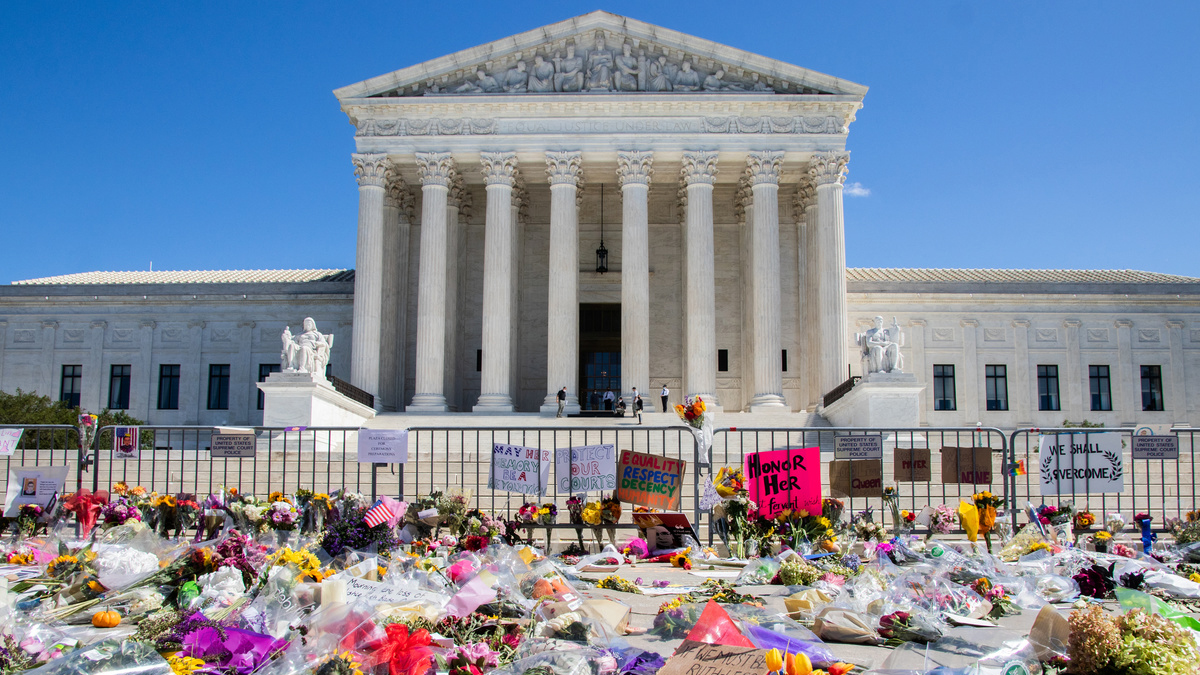In the Supreme Court’s first abortion rights case since the death of Justice Ruth Bader Ginsburg, justices acted to temporarily preserve reproductive rights, sending a case adjudicated in Greenbelt back to Maryland’s lower courts.
The case in question, Food and Drug Administration v. American College of Obstetricians and Gynecologists, delves into the accessibility of abortion medication amid the pandemic — something some University of Maryland students and professors said is critical amid this public health crisis.
In the case, the FDA argued that pregnant people must pick up these pills — which are used to terminate pregnancy — at a medical provider, even though other medications were made available for mail delivery.
In July, federal district court judge Theodore Chuang — who sits in Greenbelt — ruled in favor of ACOG, barring the FDA from enforcing the rule. The case landed in the Supreme Court when the Trump administration attempted to stop the lower court. Judge Chuang was allotted 40 days to reconsider his ruling after the Supreme Court returned the case. The court can dissolve, modify or continue its order, contingent on how conditions change.
Victoria Worley, a government and politics doctoral student, explained that substantial obstacles in access to abortion services are prohibited by the precedent set by the 1992 landmark abortion rights case Planned Parenthood v. Casey.
“If you want this pill, you have to come get it,” Worley explained. “You don’t have to take it here, but you just have to come get it.”
The expansion of telehealth has allowed medicine to be delivered to patients, yet abortion pills are the exception.
Susan Dwyer, a philosophy professor at this university, said this distinction lies in the risk of prescribing the medicine without health care providers seeing patients. The health professionals are unable to verify the duration of the pregnancy and evaluate other risk factors, such as their proximity to a medical facility in case of an emergency.
Dwyer finds Chuang’s decision “perfectly reasonable.”
“It’s easy in a case like this to think ‘Oh, here we go.’ This is one more move in a pattern we have seen from individual states and from the government to rein in women’s access to abortion,” Dwyer said.
[UMD students confident in high turnout among college voters]
Dwyer’s perspective holds true across the country, too. A coalition of 22 states formed in opposition to the enforcement of the rule during the pandemic.
Still, two conservative justices dissented in the court’s ruling to send the case back to the lower courts.
In their dissent, the justices wrote that the argument that people seeking a medication abortion undergo undue burden isn’t plausible because Gov. Larry Hogan has opened casinos, restaurant dining, hair salons and other businesses.
“The District Court saw the pandemic as a ground for expanding the abortion right recognized in Roe v. Wade,” Justice Samuel Alito wrote.
For sophomore Aimee Dastin-van Rijn, it’s troubling that the government limits access to important services during the ongoing public health crisis.
“It’s a problem that people in this country have to be afraid for their rights,” she said.
Dastin-van Rijn, an economics and theatre double major, doesn’t think the government should pick and choose which medications and procedures it considers essential.
“That definitely depends from person to person,” she added.
Dastin-van Rijn said that access to reproductive care services during the pandemic is especially important because people have fewer resources. For people who do carry to term, she’s concerned about them not being able to go to prenatal appointments.
Concerns about the accessibility of abortion pills amid the pandemic transcend beyond this university. Naomi Bouchard-Gordon, an abortion doula and the communications and outreach lead at the Baltimore Doula Project, said requiring these pills be picked up in-person poses a great barrier to those with limited resources.
[UMD students spent a year fighting for more free period products. They’re still waiting.]
The Baltimore Doula Project is a volunteer-run nonprofit organization that supports people through all outcomes of pregnancy, including abortion, miscarriage and birth.
“Everyone deserves health care, and abortion care is health care,” she said.
Still, the temporary preservation of accessibility for these abortion pills is just one case — and it could change in a little over a month. Some have expressed concerns that the strides made over the years could be repealed based on the current judicial system.
“Cases coming up in the next few terms, especially after the election about privacy, about states’ rights,” Worley said, “can have serious implications for the future of Roe v. Wade and Planned Parenthood v. Casey.”



